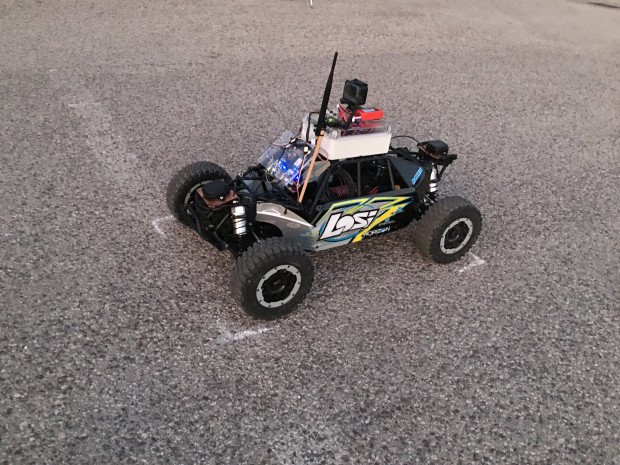
Mars rovers, drones, and robotic “dogs” are all types of mobile robots. They’re able to move independently through their surrounding environment and react to obstacles they encounter along the way. Thanks to these abilities, mobile robots can be used to assist humans in activities such as surveillance, search and rescue, patrolling, construction, and medical care. This wide range of applications has helped make mobile robotics one of the fastest growing fields of research today.
Professor Karl von Ellenrieder of the Free University of Bozen-Bolzano (unibz) has spent his career developing automatic control systems for mobile robots. His work focuses on developing mobile, unmanned robots that can be used outdoors in unpredictable and changing conditions. He’s part of the recently-established Field Robotics South-Tyrol Lab where he and his colleagues are developing mobile robots that can be used in agriculture and forestry. The lab has state-of-the-art equipment for outdoor robotics work as well as office space where they can work out any kinks before they test their robots outdoors, in the rain, wind, and snow. “We’re quite lucky here, as unibz is a new university and it's growing quite quickly,” explains professor von Ellenrieder. “The decisions that we make now and what we do now will have a long term effect on the university. It's a rare opportunity for a researcher to be able to help build a lab like this from scratch and to realize the long term impact.”

One of the ways professor von Ellenrieder aims to create long term impact through his work is by applying it to research that could benefit the small businesses within the local South-Tyrol community. The region has a large agricultural industry and is full of small family farms located in hard to reach places or rugged terrain. In these tough conditions, using robots and partially mechanized agriculture could be greatly beneficial for tasks like harvesting crops or monitoring orchards. Professor von Ellenrieder and his colleagues are also looking at using unmanned aerial vehicles to do things like survey forests and lakes or construct precise maps of rugged terrain. “We've been in discussion with vineyards for example, to see what we can do for them. There's also the possibility of monitoring ski slopes for avalanches. That kind of thing works really naturally with field robots,” he says.
Professor von Ellenrieder became interested in robots as an undergraduate student studying aeronautics & astronautics at MIT. A friend told him about a lab that was training students to scuba dive and test robots underwater in order to simulate the weightlessness of space. “I was like, ‘You're scuba diving and testing robots underwater? Well, I'm gonna do that!’ The topic itself was also very, very interesting to me, as was the chance to do something a little bit adventurous,” says professor von Ellenrieder. He went on to earn a doctorate in aeronautics & astronautics and gained expertise in developing unmanned systems that could be used outdoors, particularly in marine environments. “But a lot of the same principles apply whether you're making a robot that's going to operate underwater, in space, or here in the Italian Alps,” professor von Ellenrieder says.

Testing robots out in the field gives professor von Ellenrieder plenty of opportunity to appreciate the natural beauty that South Tyrol is renowned for. “Whenever you do experiments outside, you see a different side of the world. There's a little airport near where we do a lot of our tests and sometimes when we're testing we’ll see gliders or even people doing parachute training. Or I look up and see the mountains and the sun coming through the clouds. It just makes me feel good and I think to myself, ‘I'm glad I'm here and I'm doing this.’”
Continue reading











